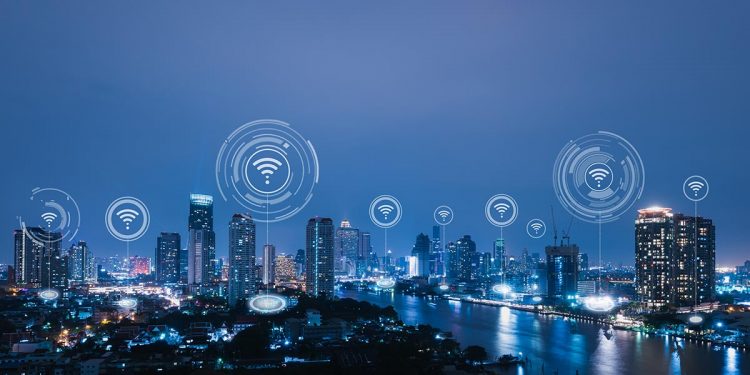Dieser Beitrag ist auch verfügbar auf:
Deutsch
The idea of “smart cities” has become increasingly important worldwide in recent years. These cities, which are characterized by the integration of technology and data, promise a more sustainable, efficient and liveable future. But there are some significant hurdles in the way of realizing this concept. So what challenges need to be overcome to make smart cities a reality?
1. data protection and privacy: To ensure data protection and privacy in smart cities, cities must introduce transparent data protection guidelines. This includes the anonymization of collected data, the definition of retention periods and the consent of citizens to the use of data. Examples of this include the city of Barcelona, which provides its citizens with comprehensive information on how their data is used, and Singapore, which has introduced strict data protection laws.
2. investment costs: One way to manage investment is to enter into public-private partnerships (PPPs). Cities such as Dubai have used PPPs to fund smart city projects. These partnerships make it possible to attract private capital for the development of technology infrastructure while the public sector retains control.
3. technological integration: Cities should rely on open standards to facilitate the integration of technology. For example, Amsterdam has developed an open smart city reference model that serves as a guide for the implementation of technology. This promotes interoperability between different systems and ensures seamless collaboration.
4. digital divide: To overcome the digital divide, cities must ensure access to the internet for all citizens. This can be achieved through the expansion of free Wi-Fi hotspots in public areas or educational programs to promote digital literacy. One example is the “Kolkata Free Wi-Fi” program in India, which offers free Wi-Fi throughout the city.
5. resistance and acceptance: Cities should involve citizens in planning processes at an early stage and take their concerns seriously. One example of this is Vienna, which actively involved its citizens in the development of its smart city strategy. This led to greater acceptance of the changes and a better understanding of the benefits.
6 Security: Cybersecurity is crucial. Cities should invest in world-class security measures and conduct regular audits. Singapore has introduced a National Cybersecurity Master Plan program to help protect the city from threats.
7 Environmental impact: Smart cities should promote sustainable technologies and practices to minimize environmental impacts. Copenhagen is an excellent example, as it relies on renewable energy, low-emission transportation and green buildings to reduce its environmental impact.
Overcoming these challenges requires a holistic approach that focuses on the needs and concerns of citizens. If smart cities successfully overcome these hurdles, they could not only be more efficient and livable, but also serve as a model for urban innovation around the world.
Overall, the path to realizing smart cities is fraught with various challenges that require careful planning, collaboration and investment. Despite these hurdles, however, smart cities offer the potential to improve people’s lives, conserve resources and enhance the quality of life in urban areas. Overcoming these hurdles is a worthwhile endeavor that could fundamentally change the way we live in cities in the future.
















